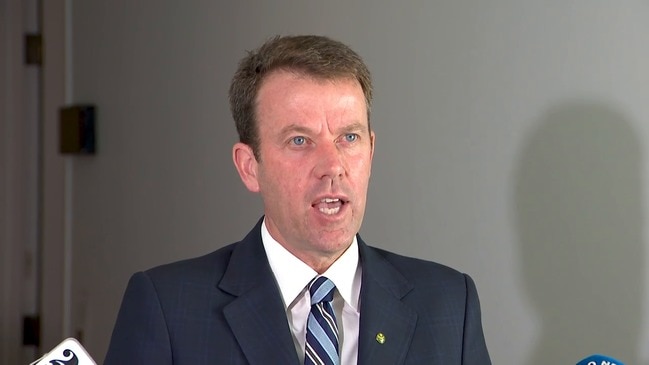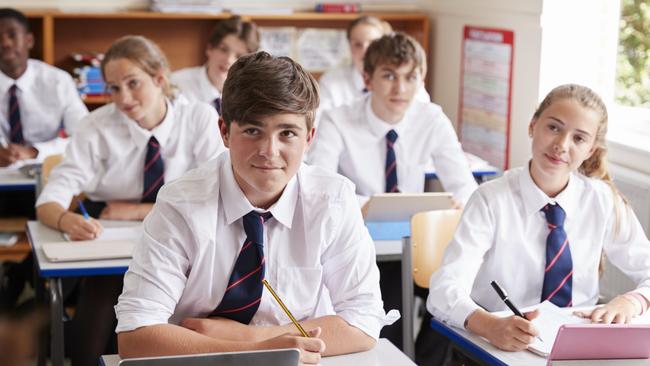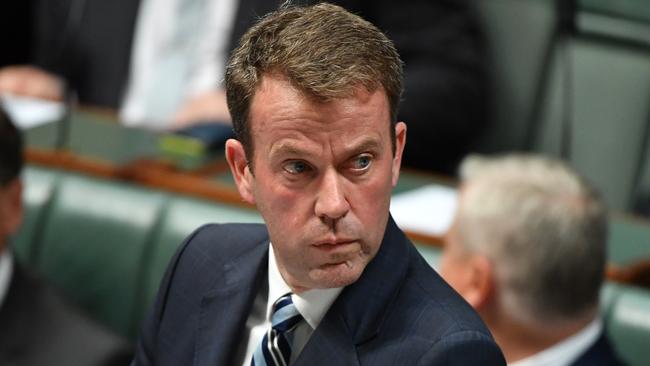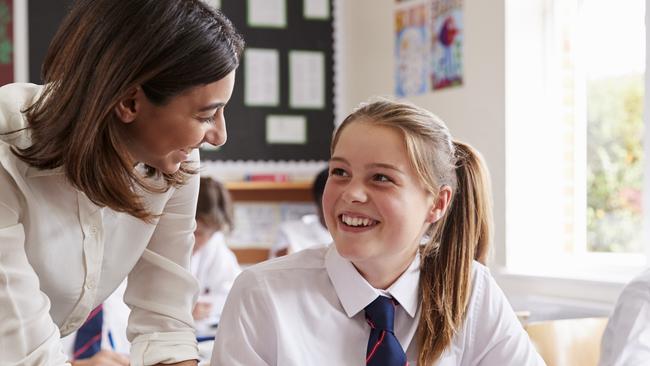Louise Roberts: Poor education results come down to poor parenting
In our age of eternal busyness, it’s easy for parents to feel that just enough is good enough for their children. But this week’s PISA results prove the opposite is true, writes Louise Roberts.

Rendezview
Don't miss out on the headlines from Rendezview. Followed categories will be added to My News.
Of all the things I thought would happen to my kids while immersed in the Aussie education system, facing the spotlight on a global stage of failure was not one of them.
But the inconvenient truth is that parents most certainly have had a hand in dumbing down our younger generations.
It’s not time-poor parents – it’s time-poor kids thanks to their competitive and misguided mums and dads.
This week’s PISA results delivered an eviscerating assessment of our 15-year-old students with one in five of them below the international baseline standards for reading, maths and science.
Here in NSW the news is worse with the state’s children now a full academic year behind in reading and science than where they were in 2000.
And so it was the politicians who inevitably delivered the sound bites of shock including Federal Education Minister Dan Tehan who said the results should “have alarm bells ringing” and are “incredibly disappointing”.
RELATED: Australian students slipping in maths, lagging behind in reading and science
“One of the frustrations I have as Federal Education Minister is I’m not responsible for any schools across the country,” he said in an interview.
What comfort that gives me as a parent. But it is pointless federal blaming state and teachers blaming each other.

We need great teachers – and we need great parents more. Parents who are more in tune with their children’s education can also make a profound difference in their development and achievement. Otherwise how do we mitigate them being loaded up with propaganda from teachers who have a political cause to push?
And we learn that if a teacher describes your child as “average” they have basically given up on them. So get involved and stay involved.
A PISA report released ten years ago showed 15-year-old students whose parents often read books with them during their first year of primary school show markedly higher scores than students whose parents read with them infrequently or not at all.
“The performance advantage among students whose parents read to them in their early school years is evident regardless of the family’s socio-economic background,” the report revealed.
RELATED: NSW has suffered the biggest drops in Australian PISA results
“Parents’ engagement with their 15-year-olds is strongly associated with better performance in PISA.”
The report said many parents were busy juggling competing demands at work and at home and there never seemed to be enough time.
“Often, too, parents are reluctant to offer to help their children with school work because they feel they lack some of the skills that would make a difference to their children’s success in school,” the report said.

I asked a teacher friend, her own daughter now in HSC, her views on how we educate kids and her response was this: “Too much, too fast. Inconsistency, overstimulation, less time on basics, no quality practice in maths so kids are reinforcing their learning, going beyond their understanding too soon and setting them up for a long battle to catch up.”
Her comments on reading were particularly confronting: “Reading is a dying skill as we are overloaded and over stimulated. Kids’ brains are not thinking how we used to because we don’t ‘read’ for pleasure or enjoyment anymore.
“Read to your children no matter their age, get them off devices. Even using technology for reading help is not reading for meaning.”
RELATED: Shock report reveals why Australian schools are failing
As for maths: “The curriculum is in a state of confusion. Years of changing the techniques of teaching maths from rote/conceptual/open ended challenges. I think through the late 1990s to 2000s basic skills slowly disappeared but the testing began. How ironic.” She has just left her job.
Our education system is on life support and I know many parents feel the curriculum is clogged with material like social justice awareness at the expense of rote learning in science, maths and grammar.
PISA national project manager Sue Thomson described the results as a “wake-up call”.
“We’re not giving them the skills that they need in maths or in reading or in science,” she said. “We’re not giving them the same level of skills as they are in other countries.”
“That is a concern, particularly in a global economy where our kids will compete with kids all over the world.”

As parent your job is to prepare your child for adult life and sure it’s reasonable to expect school to be a vital part of that. So why are we cramming our kids’ schedules with so many activities?
I have another friend who runs a weekly swimming squad and she tells me the list of activities today’s kids and teens have are phenomenal. She sees kids who are tired and lacklustre, even on a Monday afternoon.
“There is football training, tennis, band, gymnastics, ballet, off-season sport training, fitness, tutoring, netball training, and the list goes on,” she said. “It makes my head spin and my heart break for these young people caught in a whirlwind of activity.”
RELATED: PISA results: Public schools trailing independents and other countries
“I know of a set of twins who are so busy during the week that they eat most of their evening meals in the car.”
It’s self-indulgent to wish for a return to the old days where kids had time. Time to be kids, time to climb trees and get up to mischief with the neighbourhood kids after school, coming in only when mum or dad opened the front door and called you in for dinner. But we have turned the wheel too far.
Parents are more disconnected from their children than ever before. Sure social media, the internet and mobile phones present massive challenges, but when did the simple act of sitting down at a table as a family for a meal become a novelty?
Australia has always felt the tyranny of distance given its geographical location but the gaping chasm between parents and their children and illustrated in these PISA results makes this pale in comparison.
Parents have a responsibility to keep a close eye on their child’s educational progress, offering back up and support where necessary. And that support needs to be there from day one.
It will lay the foundations that will hopefully ensure they don’t fall through the cracks.
Originally published as Louise Roberts: Poor education results come down to poor parenting


